10 "Autopay" Dividend Stock Picks to Subscribe To
A common element shared by many great dividend stocks that raise their payouts through good times and bad: a low-risk business model that drives recurring revenues.

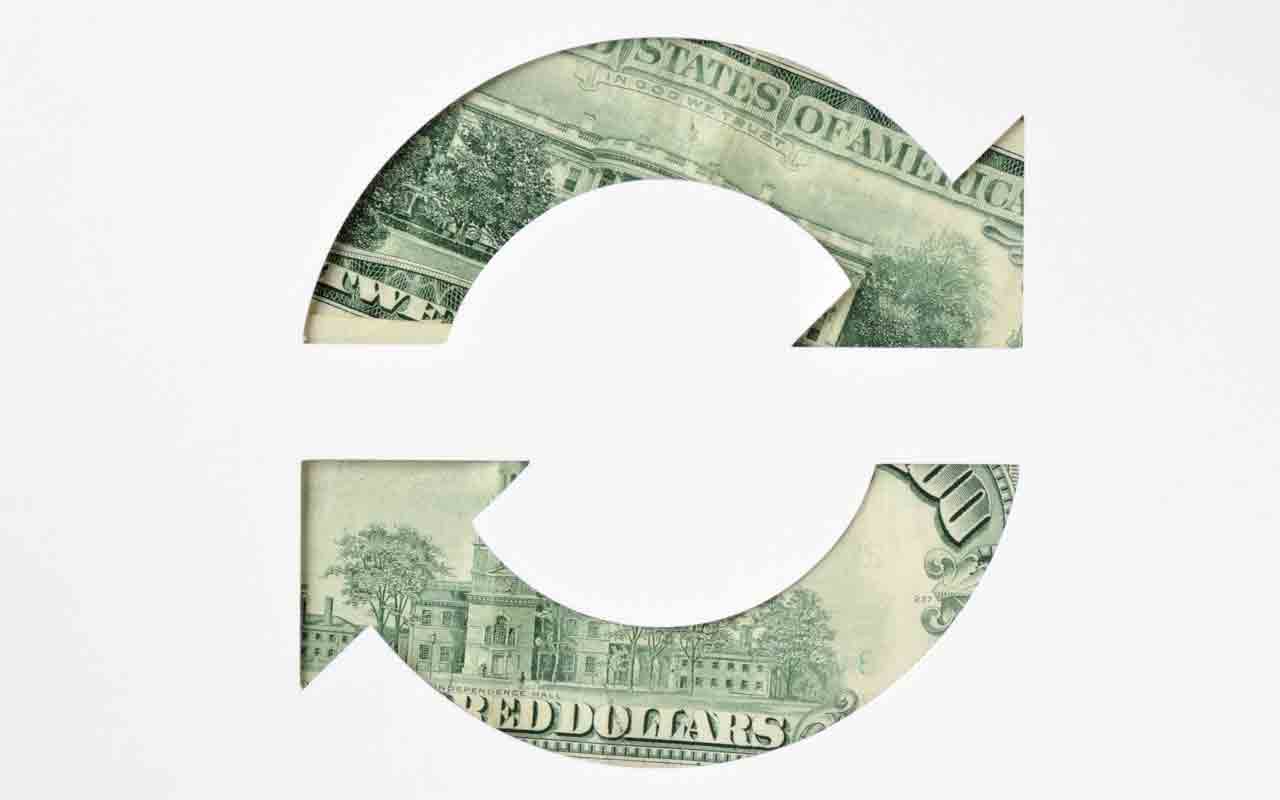
Profit and prosper with the best of Kiplinger's advice on investing, taxes, retirement, personal finance and much more. Delivered daily. Enter your email in the box and click Sign Me Up.
You are now subscribed
Your newsletter sign-up was successful
Want to add more newsletters?

Delivered daily
Kiplinger Today
Profit and prosper with the best of Kiplinger's advice on investing, taxes, retirement, personal finance and much more delivered daily. Smart money moves start here.

Sent five days a week
Kiplinger A Step Ahead
Get practical help to make better financial decisions in your everyday life, from spending to savings on top deals.

Delivered daily
Kiplinger Closing Bell
Get today's biggest financial and investing headlines delivered to your inbox every day the U.S. stock market is open.

Sent twice a week
Kiplinger Adviser Intel
Financial pros across the country share best practices and fresh tactics to preserve and grow your wealth.

Delivered weekly
Kiplinger Tax Tips
Trim your federal and state tax bills with practical tax-planning and tax-cutting strategies.

Sent twice a week
Kiplinger Retirement Tips
Your twice-a-week guide to planning and enjoying a financially secure and richly rewarding retirement

Sent bimonthly.
Kiplinger Adviser Angle
Insights for advisers, wealth managers and other financial professionals.

Sent twice a week
Kiplinger Investing Weekly
Your twice-a-week roundup of promising stocks, funds, companies and industries you should consider, ones you should avoid, and why.

Sent weekly for six weeks
Kiplinger Invest for Retirement
Your step-by-step six-part series on how to invest for retirement, from devising a successful strategy to exactly which investments to choose.
A common element shared by many great dividend stocks that raise their payouts through good times and bad: a low-risk business model that drives recurring revenues. Some of the market's most consistent stock picks have subscription-based models, or razor-razorblade models that generate repeat sales of consumables.
Gillette, now part of Procter & Gamble (PG), pioneered the razor-razorblade model as a way to build recurring sales it could count on and plan around. But it wasn't alone. Printer manufacturers HP Inc. (HPQ) and Seiko Epson (SEKEF) used a similar approach, selling inkjet printers with replaceable ink cartridges. Keurig, now part of Keurig Dr. Pepper (KDP), rose to fame by selling Keurig machine that brewed single-serve K-Cup pods. More recently, tech companies have discovered the benefits of putting customers on subscription models and setting them to "autopay," leveraging cloud-based services to generate recurring fees.
In a CFO Research/Salesforce survey of senior finance executives, more than half of respondents said 40% or more of their company's revenues were subscription- or usage-based. And why not? Profits become more predictable. Customer turnover is reduced because of high switching costs. You can also achieve greater operating efficiency thanks to more predictable demand. Recurring sales also often deliver higher margins, enhancing the bottom line. And finally, many investors prefer less risk, and can be enticed to giving higher valuations to companies with more predictable financial results.
Just ask Adobe Systems (ADBE), which launched its Creative Cloud in April 2012. Revenues have spiked from $4.4 billion in 2012 to $9.0 billion last year. The stock has shot up 700% since then – a performance six times greater than the S&P 500.
What other companies are harnessing recurring revenues? Here are 10 "autopay" dividend stock picks to subscribe to.
Data is as of Oct. 22.

Apple
- Market value: $1.08 trillion
- Dividend yield: 1.3%
After launching the App Store a decade ago, Apple (AAPL, $239.96) discovered that most of its App Store revenues came from distributing other companies' software and services.
Now, the company hopes to offset slowing iPhone sales by launching more of its own subscription services, including Apple TV+ streaming content, Apple News+ (magazines, newspapers and other digital content) and Apple Arcade streaming games. Indeed, Apple TV+ will be delivered not only over its own Apple TV box, iPhones and other Apple products, but other platforms, including Roku and smart TVs.
Apple will try to leverage its installed iPhone user base of nearly 1.5 billion iPhones worldwide to reap dependable, regular fees. Apple TV+ will cost $4.99 per month, as will Apple Arcade. Apple News+ is $9.99, so that's nearly $20 per month for every user it can rope into all three of those services.
The company's Services division grew 33% last year to almost $40 billion, accounting for 15% of revenues. Morgan Stanley estimates Apple's media bundle package that combines video, news and music could generate an additional $22 billion in sales by 2025.
Apple hopes these subscription-based offerings will help re-energize profit growth, which has slowed over the past few years. In fact, analysts expect a 2% decline in earnings per share (EPS) this year. Turning that trend around is important if Apple wants to continue improving its dividend at the double-digit compound rate it has averaged over the past half-decade.
AAPL shares currently have 22 Buy ratings, 15 Holds and 5 Sells. Evercore's Amit Daryanani has Apple among his stock picks; he rates it Overweight (equivalent of Buy), citing "plenty of upside" from the new Services offerings.
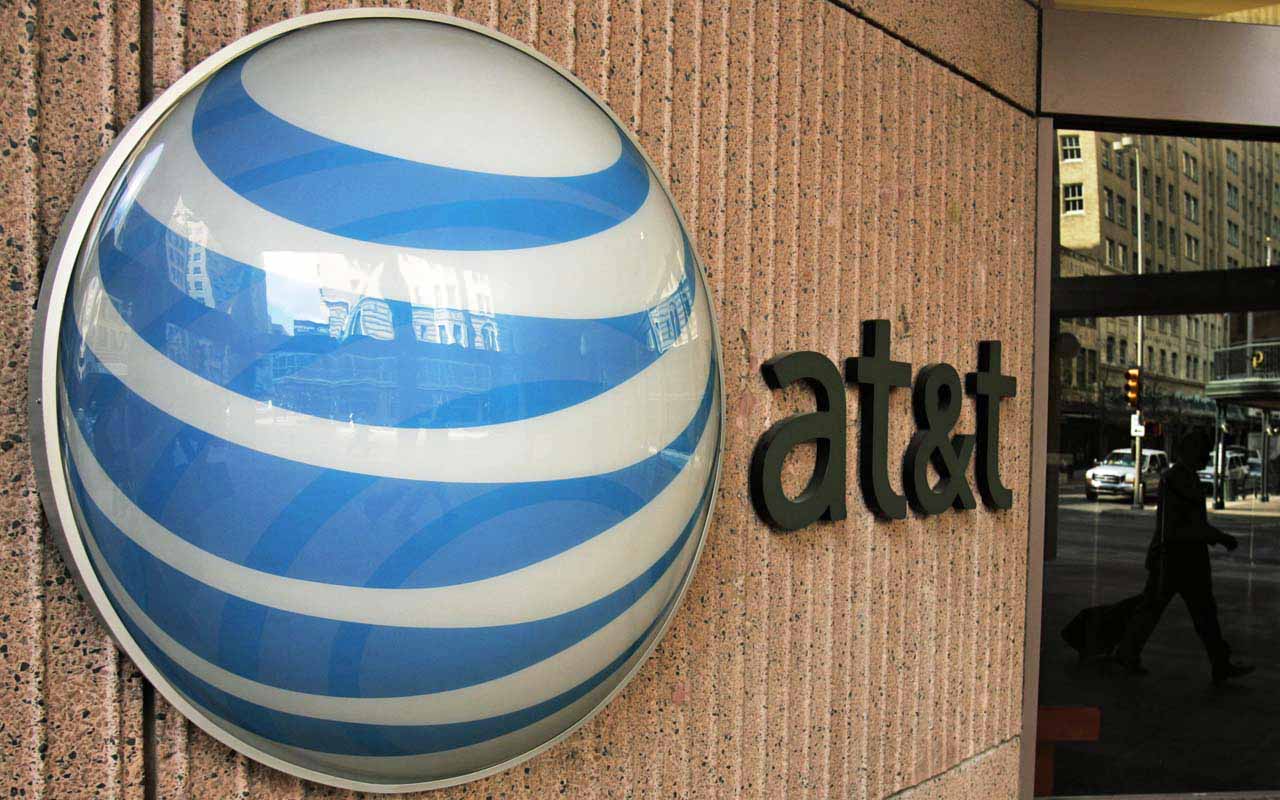
AT&T
- Market value: $278.9 billion
- Dividend yield: 5.3%
- AT&T (T, $38.17) made a major commitment to content in 2018 when it spent $85 billion to buy Time Warner, which owed the Turner, HBO and Warner Bros. businesses. AT&T, which already has a struggling streaming services (TV Now, formerly DirecTV Now), plans on launching a new streaming service soon that will feature content from HBO, Cinemax and the Warner film and TV library.
The company said this summer that it was targeting 70 million subscribers, and is even considering aggregating other streaming services. But it does have an uphill battle against Apple's new service, as well as established players such as Netflix (NFLX) and Amazon.com's (AMZN) Amazon Prime.
Of course, AT&T also has its legacy, utility-esque wireless service business, including more than 76 million postpaid subscribers.
While AT&T loaded up on debt to absorb Time Warner, it already has reduced net debt by $18 billion this year. It also has exceeded its 2019 goal of raising $6 billion to $8 billion through asset sales and other moves, generating $9 billion as of September.
Earnings growth has been weak given saturated wireless and TV markets. But the company has grown its free cash flow (FCF, essentially the cash left over after paying for capital outlays and operating expenses) by nearly 18% annually over the past five years. That has allowed AT&T to maintain its 35-year streak of uninterrupted dividend growth, although the rate of growth is a glacial 2%.
The 5%-plus yield should appeal to income investors, however. And AT&T might get a shove into better operational results thanks to an activist investor. Namely, Elliott Management took a $3.2 billion stake in early September, saying it believes several initiatives could send the stock to $60 per share.

Cisco Systems
- Market value: $201.9 billion
- Dividend yield: 2.9%
- Cisco Systems (CSCO, $47.55) is transforming its business by focusing on software and services. The company launched its first subscription-based networking service in 2017, and the Catalyst 9000 product it launched on became "the fastest-ramping product in the history of the company," CEO Chuck Robbins said in March of this year.
Cisco still generates more revenues from hardware, but its software and services sales are growing more quickly. The company expects software and services to make up 30% of total revenues over the next three years. And Robbins said at the time that 65% of its software sales were subscription-based.
Income investors will appreciate more reliable sales and profits, the latter of which should continue to fuel Cisco's aggressive dividend growth. The payout has expanded by 13% compounded over the past half-decade. That has contributed to a 139% total return (price plus dividends) during that time – almost 68 percentage points better than the S&P 500.
Cisco also has gotten attention for its high return on equity (ROE). Goldman Sachs chief strategist David Kostin said in July to seek out stock picks with high ROE growth amid slower economic expansion. Cisco, whose ROE stands at 30.3%, which is several times better than the industry, is one of those picks.
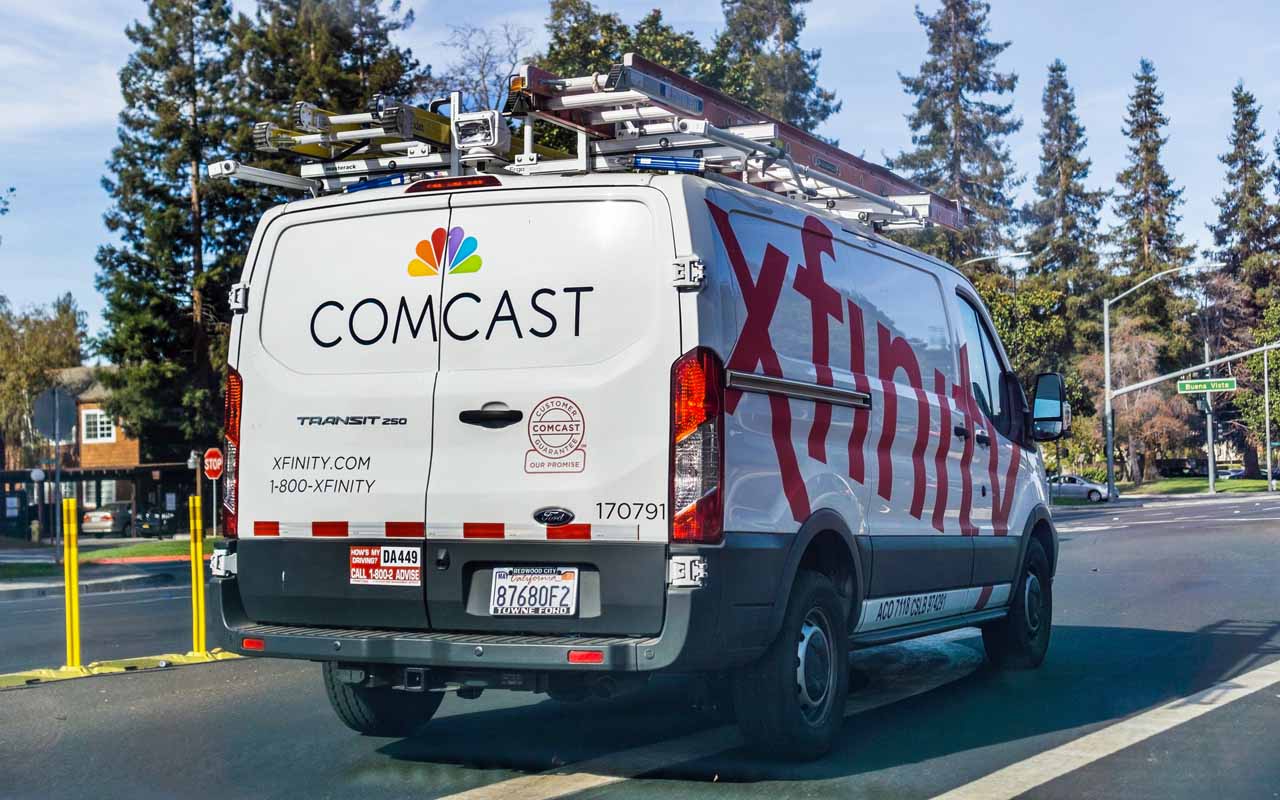
Comcast
- Market value: $208.0 billion
- Dividend yield: 1.8%
Media giant Comcast (CMCSA, $45.77), which already is in the cable and internet subscription business, is now delving into the world of streaming to garner more broadband customers and offset TV cable cord-cutting.
Comcast launched its Flex streaming video service for broadband-only customers in March. The service, priced at $5 per month, allows Comcast customers to watch Netflix, Amazon Prime, HBO and Showtime, along with 10,000 free online movies, without an outside set-top box. (But it does require customers to rent a Gateway router from Comcast for an additional fee.)
Comcast-owned NBC Universal also plans on rolling out a free streaming service for its pay-TV customers in early 2020. Non-customers would pay $12 per month for the service, which would compete with Netflix, Amazon and others.
Overseas markets are a priority, too. CMCSA established a sizable foothold through its 2018 acquisition of Sky, a pay television service with over 23 million subscribers in Europe.
These moves seem to have the company pointed in the right direction. Comcast has logged 16% average EPS growth over the past five years, and analysts expect a 19% jump in profits this year, followed by a 12% improvement in 2020. Citi analyst Michael Rollins (Buy) raised his price target from $50 to $56 on Oct. 4. He expects Comcast to take share in the broadband and business markets, and manage its way through a changing content distribution industry.
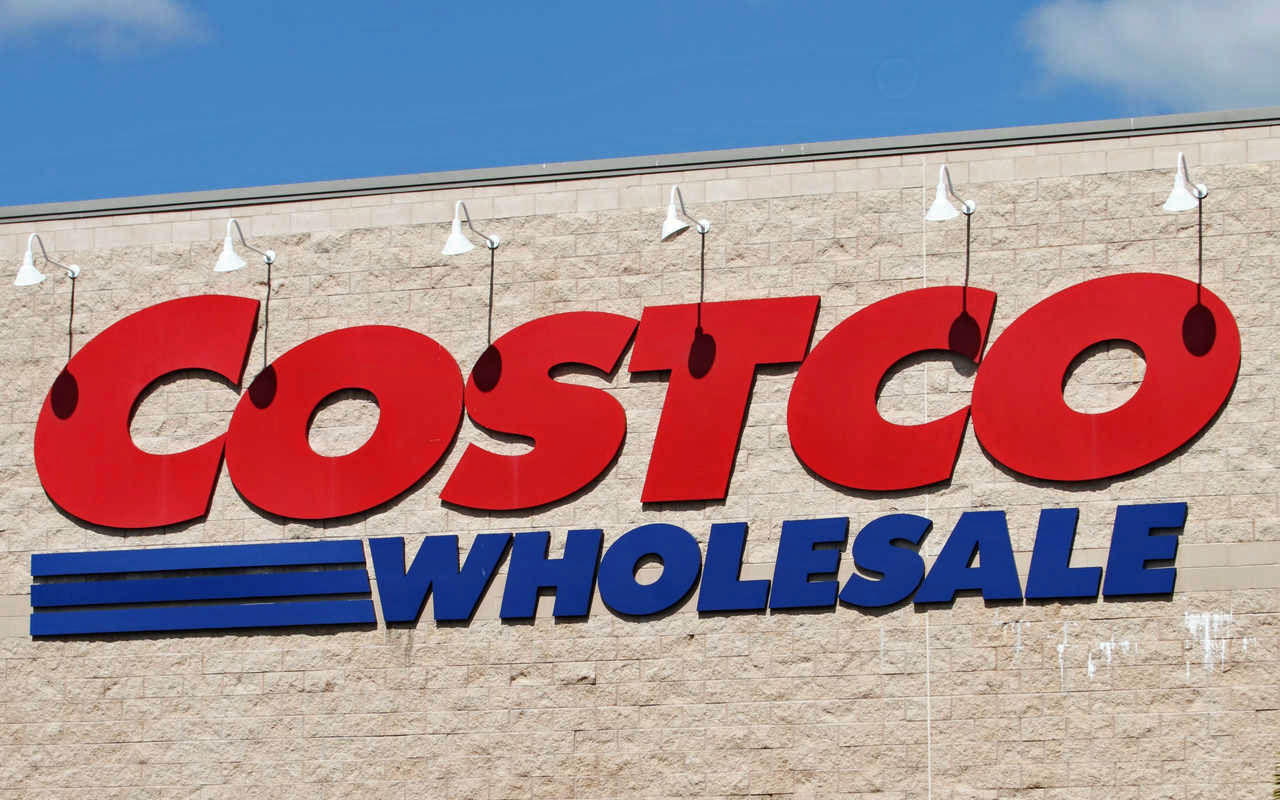
Costco Wholesale
- Market value: $131.9 billion
- Dividend yield: 0.9%
Price Club pioneered the warehouse membership concept, opening its doors in 1976 and charging customers a modest annual fee to shop at its stores. Costco Wholesale (COST, $299.97) followed suit when it opened in 1983, then merged with Price Club a decade later.
Since then, the company's customer base has grown to 98.5 million cardholders worldwide, served by 783 warehouses worldwide, including 536 in the U.S. It also opened its first location in China this year.
The membership model isn't as essential to revenues as it is with some of these other stock picks; it contributes a modest 2% to 3% to the top line. However, the value Costco produces justifies the fees, which results in loyal customers and low turnover. Costco's membership renewal rates are 90% in the U.S. and 88% worldwide. The company has been able to leverage membership growth by opening new warehouses both domestically and internationally, and expanding product offerings of its Kirkland Signature brand, which contributed $39 billion and 28% of sales last year.
Strong recurring revenues have enabled Costco to outperform industry peers by delivering 7.9% annual sales growth the past half-decade, versus a median 3.4% for industry peers. Profitability is improving, too, as its 12.9% average annual income growth over the past 10 years has accelerated to 15.9% over the past three.
Costco's reliably improving financials have allowed it to raise dividends for 15 consecutive years. It has done so at a nearly 13% annual compounded clip since 2014.
Most recently, Coscto delivered an earnings beat in early October that sent several analysts scrambling to upgrade their price targets. Raymond James analyst Budd Bugatch maintained his Outperform rating and $300 price target after the announcement, but said "the membership warehouse model is arguably the most attractive business model in hardlines retail" and that "we continue view the stock and company as a compound growth story."
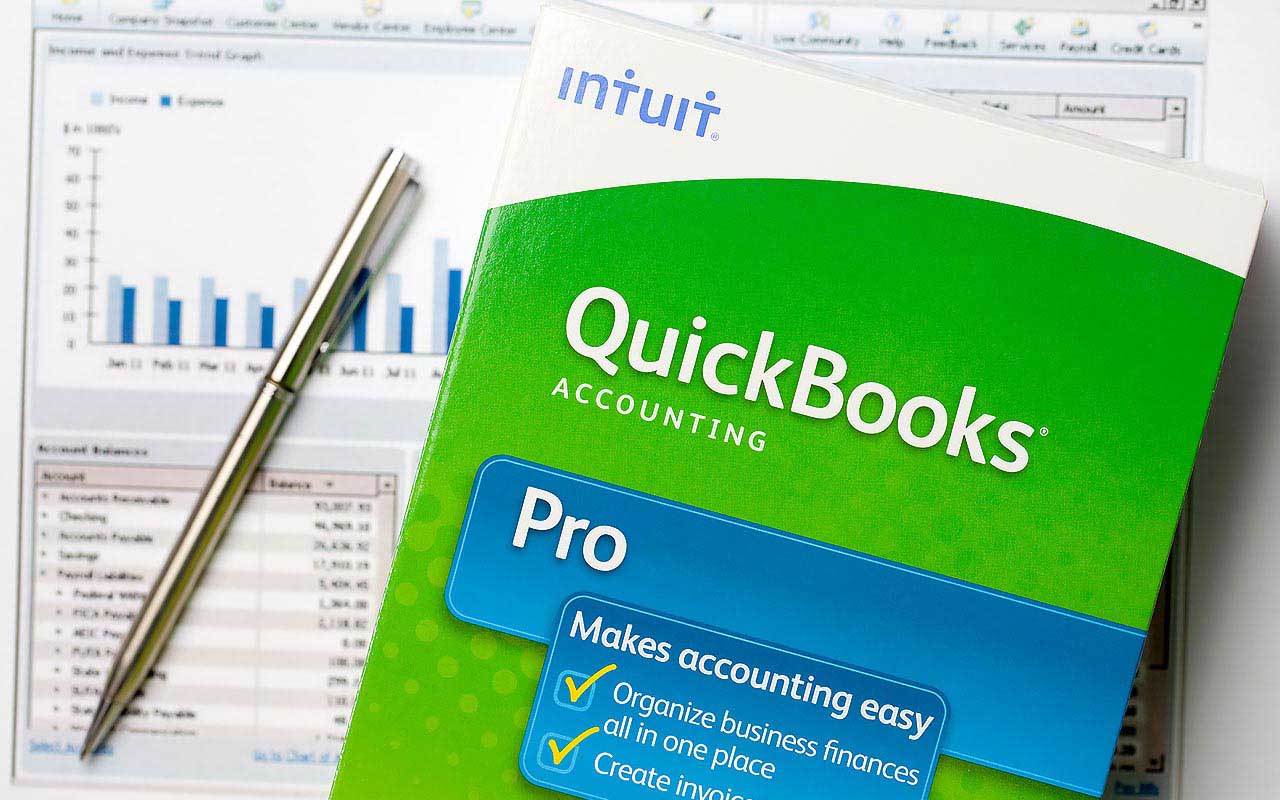
Intuit
- Market value: $65.9 billion
- Dividend yield: 0.8%
- Intuit (INTU, $253.33) followed Adobe's lead in transitioning from CDs to a cloud-based subscription model for its popular QuickBooks and TurboTax software. In the process, it also jump-started its profits and stock price.
Admittedly, Intuit had something of a subscription-esque model even before it went to the cloud. Its physical CDs needed updated annually to incorporate changes in tax and accounting laws. However, manufacturing, packaging, shipping and buying shelf space for CDs cost billions of dollars over time.
That changed around the middle of this decade as Intuit pivoted sharply toward the cloud. In fiscal year 2014, Intuit reported $853 million in net income on $4.2 billion in profits; in FY2018, it made $1.2 billion on almost $6 billion in revenues. Its earnings (42%) had actually grown more quickly than sales (40.5%) in that time.
INTU shares have trounced the market in the meanwhile, climbing 213% over the past half-decade, versus 55% for the broader market. Its dividend has rocketed higher by a compound rate of more than 16% annually. And that payout has oodles of room to grow, with dividends accounting for a 13% sliver of profits.

Microsoft
- Market value: $1.05 trillion
- Dividend yield: 1.5%
- Microsoft (MSFT, $136.37) began transitioning to a subscription-based model in 2011 by launching Office 365, which delivered Word, Excel and its other ubiquitous productivity software via the cloud. Since then, the company has become a leading vendor of cloud-based services – in more than one way – generating approximately two-thirds of revenues from subscriptions.
Microsoft also has tapped the cloud via its Azure infrastructure, which also is subscription-based. In its most recent quarter, revenue growth for the No. 2 cloud service provider slowed to "just" 64% year-over-year. (To be fair, the prior three quarters saw 76%, 76% and 73% growth.) That's still far faster than No. 1 Amazon Web Services (AWS).
Subscription-based revenues have also improved Microsoft's earnings stance. have also improved Microsoft's EPS performance. Its net income growth has more than doubled from a 10-year average of 10.4% to a three-year average of 24.1%.
MSFT shares have rocketed in response, more than tripling over the past five years. The dividend has swelled, too, by more than 10% compounded annually over the past half-decade. That includes an 11% hike this year, to 51 cents per share, continuing uninterrupted annual dividend hikes for every calendar year since initiating its payout in 2003. And in addition to $3.5 billion spent on dividends in its most recent fiscal year ended June 30, it bought back $4.2 billion in shares.
Microsoft remains among Wall Street's top stock picks; of 15 analysts who have sounded off on MSFT over the past three months, 14 consider it a Buy.

NIC
- Market value: $1.4 billion
- Dividend yield: 1.5%
- NIC (EGOV, $20.73) is a small-cap dividend stock that provides payment processing and other digital solutions to more than 6,000 federal, state and local government agencies under long-term contracts. The company processed over $19 billion of online payments for government agencies last year, which included income tax and property tax payments, vehicle licensing fees, hunting and fishing licenses, tickets and court fines and business licensing fees.
Federal agency customers include Departments of Transportation, Interior and Agriculture as well as the Library of Congress.
The company's long-term government contracts provide exceptional revenue visibility. Roughly 96% of its sales are estimated to be recurring in nature. Better still, the company's business is exceedingly recession-resistant, with "same-state revenue" growth barely flinching during the Great Recession.
Switching costs for its services are high so its government customers rarely change vendors. NIC has contracts with 27 different states; of these, five have been customers for more than 20 years, 13 have been customers 10 to 20 years and nine have been customers for less than 10 years with the company. Historical same-state revenue growth has averaged around 8%; it's expected to be 10% in 2019.
New products such as RxGov, a prescription drug monitoring technology, are helping those same-state revenues. The company also recently expanded its professional licensing services by acquiring Complia, which provides a platform dedicated to cannabis and hemp industry regulation.
NIC doesn't receive much analyst coverage, but analyst Joseph Vafi (currently with Canaccord Genuity, but with Loop Capital at the time of his note) upgraded EGOV stock to Buy in May after the company reported a March-quarter performance that included the strongest same-state sales growth in years.
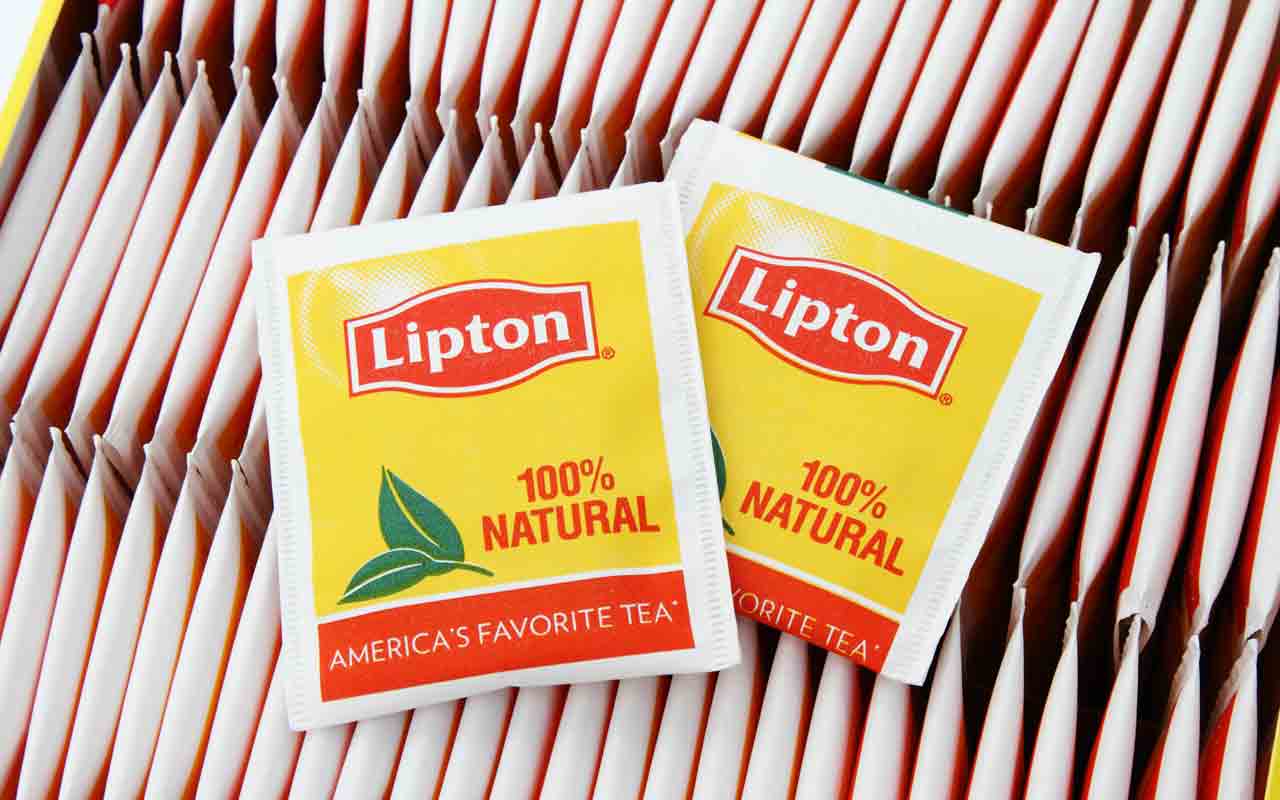
Unilever
- Market value: $155.5 billion
- Dividend yield: 3.1%
- Unilever (UL, $59.17) is a consumer staples giant that markets hundreds of products that consumers buy multiple times per year, such as shampoo, soap and detergent. The company has several multibillion-dollar brands, including Dove soap, Hellmann's mayonnaise, Lipton teas and Ben & Jerry's ice cream.
Unilever jumped into the subscription-based model in 2016 when it bought Dollar Shave Club for $1 billion. Dollar Shave Club, which offers regular shipments of razors, shaving cream and other grooming products, not only establishes a foothold for Unilever in a multibillion-dollar segment of the grooming market, but also directly challenges rival P&G's Gillette.
Unilever also is delving into products packaged in refillable containers. Unilever began test marketing nine brands (including Axe and Dove stick deodorants) in refillable containers in New York and Paris in May, and plans to launch pilot programs in London this year and Toronto and Tokyo next year. In addition to reducing plastic waste, the new program will gather consumer data, increasing switching costs for consumers and foster brand loyalty.
Brand acquisitions and an increased focus on emerging markets have helped Unilever accelerate EPS growth in recent years, even amid sluggish revenues. Sales (on a euro-denominated basis) have crawled ahead 5% between 2014 and 2018, while net income has shot nearly 80% higher. The dividend hasn't risen nearly as much, at just 4% compounded annually, though European payout programs typically don't work the same as they do here. Indeed, Unilever's payout varies from quarter to quarter.

Walt Disney
- Market value: $238.5 billion
- Dividend yield: 1.3%
Much of Netflix's share-price pain over the past few months can be chalked up to the lead-up to new streaming launches by Apple and Walt Disney (DIS, $132.40).
The latter, which already controls Hulu, is expanding its video streaming offerings in November with the launch of Disney+. The service will feature nearly every movie in the company's vast film library, which includes not just Disney titles, but Marvel, Star Wars, Pixar and others. Disney also will develop exclusive content around many of its properties.
This content juggernaut will launch at just $7 per month – far less than the $13 "Standard" Netflix subscription it lines up with best. Disney also intends on offering a triple bundle, offering Disney+, Hulu and ESPN+ for $13 per month.
Disney anticipates penetrating 20% to 30% of U.S. broadband households with the new video streaming service by 2024. A survey in July indicated that 43% of households were interested in subscribing to Disney+, before Disney even ramped up its marketing efforts.
This service should help add recurring revenues to what is otherwise a very complex business that also includes theme parks, merchandise and movies. It won't change the face of Disney's business overnight. But it will help fund Disney's dividend, which has grown from a $1.15-per-share annual payout in 2014 to $1.76 per share currently, split between a pair of 88-cent semiannual distributions over the past 12 months.
DIS shares have been flooded with Buy ratings lately as excitement about its new service swells. Morgan Stanley analyst Benjamin Swinburne, who reiterated his Overweight rating in early October, said in July that he thinks the Disney+ service could attract more than 130 million subscribers by 2024. More importantly, he believes Disney will double its overall earnings between now and then.
Profit and prosper with the best of Kiplinger's advice on investing, taxes, retirement, personal finance and much more. Delivered daily. Enter your email in the box and click Sign Me Up.

Lisa currently serves as an equity research analyst for Singular Research covering small-cap healthcare, medical device and broadcast media stocks.
-
 The Cost of Leaving Your Money in a Low-Rate Account
The Cost of Leaving Your Money in a Low-Rate AccountWhy parking your cash in low-yield accounts could be costing you, and smarter alternatives that preserve liquidity while boosting returns.
-
 I want to sell our beach house to retire now, but my wife wants to keep it.
I want to sell our beach house to retire now, but my wife wants to keep it.I want to sell the $610K vacation home and retire now, but my wife envisions a beach retirement in 8 years. We asked financial advisers to weigh in.
-
 How to Add a Pet Trust to Your Estate Plan
How to Add a Pet Trust to Your Estate PlanAdding a pet trust to your estate plan can ensure your pets are properly looked after when you're no longer able to care for them. This is how to go about it.
-
 Nasdaq Slides 1.4% on Big Tech Questions: Stock Market Today
Nasdaq Slides 1.4% on Big Tech Questions: Stock Market TodayPalantir Technologies proves at least one publicly traded company can spend a lot of money on AI and make a lot of money on AI.
-
 Stocks Close Down as Gold, Silver Spiral: Stock Market Today
Stocks Close Down as Gold, Silver Spiral: Stock Market TodayA "long-overdue correction" temporarily halted a massive rally in gold and silver, while the Dow took a hit from negative reactions to blue-chip earnings.
-
 S&P 500 Hits New High Before Big Tech Earnings, Fed: Stock Market Today
S&P 500 Hits New High Before Big Tech Earnings, Fed: Stock Market TodayThe tech-heavy Nasdaq also shone in Tuesday's session, while UnitedHealth dragged on the blue-chip Dow Jones Industrial Average.
-
 Dow Rises 313 Points to Begin a Big Week: Stock Market Today
Dow Rises 313 Points to Begin a Big Week: Stock Market TodayThe S&P 500 is within 50 points of crossing 7,000 for the first time, and Papa Dow is lurking just below its own new all-time high.
-
 Nasdaq Leads Ahead of Big Tech Earnings: Stock Market Today
Nasdaq Leads Ahead of Big Tech Earnings: Stock Market TodayPresident Donald Trump is making markets move based on personal and political as well as financial and economic priorities.
-
 11 Stock Picks Beyond the Magnificent 7
11 Stock Picks Beyond the Magnificent 7With my Mag-7-Plus strategy, you can own the mega caps individually or in ETFs and add in some smaller tech stocks to benefit from AI and other innovations.
-
 Dow Dives 870 Points on Overseas Affairs: Stock Market Today
Dow Dives 870 Points on Overseas Affairs: Stock Market TodayFiscal policy in the Far East and foreign policy in the near west send markets all over the world into a selling frenzy.
-
 Small Caps Can Only Lead Stocks So High: Stock Market Today
Small Caps Can Only Lead Stocks So High: Stock Market TodayThe main U.S. equity indexes were down for the week, but small-cap stocks look as healthy as they ever have.
